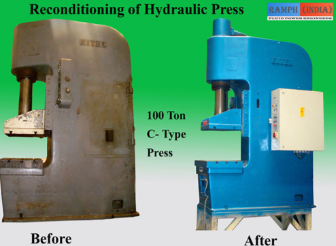A load cell machine, or load cell testing machine, is a vital device for measuring force, weight, and load across various industries, including manufacturing, logistics, healthcare, and material testing. Load cells are transducers that convert a force (such as tension, compression, pressure, or torque) into an electrical signal that can be measured and standardized. They are integral to applications requiring precise weight measurements, from industrial weighing scales and crane scales to complex medical and aerospace instruments.
Working Principle
Load cell machines operate on several core principles, including strain gauge, hydraulic, and pneumatic mechanisms. Strain gauge-based load cells are the most widely used and work on the principle of converting force into electrical resistance. These load cells consist of strain gauges attached to a metal element, which deforms slightly under load. When the strain gauge deforms, its resistance changes, producing an electrical signal proportional to the force applied. This signal is then amplified, processed, and converted to provide accurate force readings.
Hydraulic load cells, by contrast, measure load based on the fluid displacement created when force is applied to a diaphragm, transferring the pressure to a hydraulic fluid. This fluid then moves a needle or another indicating device, providing a direct measurement of load. Pneumatic load cells operate similarly, but they use air pressure instead of liquid to produce a measurable change.
Types of Load Cell Machines
Load cell machines come in various types, suited to specific applications:
- Compression Load Cell Machines: Used primarily for applications where load or weight is applied in a compressive manner, such as in weighing heavy industrial equipment or in material testing machines.
- Tension Load Cell Machines: Ideal for applications measuring tensile forces, these load cells are common in cable tension monitoring, crane scales, and other applications where pulling force is measured.
- Bending and Shear Beam Load Cell Machines: These are ideal for applications with lower profile requirements, including platform scales, conveyor belt scales, and more.
- Multi-Axis Load Cell Machines: Designed to measure force along multiple axes (X, Y, Z), these complex load cells are used in advanced applications like robotics, aerospace, and automotive crash testing.
Applications of Load Cell Machines
Load cell machines are essential in many fields:
- Industrial Weighing and Scales: Load cells are a core component in scales for weighing raw materials, goods, and heavy equipment. They’re essential in manufacturing for quality control, inventory management, and compliance with industry standards.
- Material Testing and R&D: In materials science, load cells help measure the properties of materials under various load conditions, including compressive, tensile, and shear forces, crucial for quality assurance and product development.
- Medical and Healthcare Devices: Load cells in medical devices measure precise force in devices like dialysis machines and infusion pumps. They help maintain patient safety by ensuring the right amounts of fluids are dispensed.
- Aerospace and Automotive Testing: Load cells measure forces during tests to improve safety and performance standards, from measuring aerodynamic forces in wind tunnels to crash testing for vehicle safety.
Advantages of Load Cell Machines
Load cell machines offer numerous advantages:
- Precision and Accuracy: With highly sensitive strain gauges, they provide extremely accurate readings even at micro-level forces.
- Durability and Reliability: Many load cells are built to withstand harsh conditions, including extreme temperatures, shock, and vibrations.
- Versatility: Available in various configurations, load cells can be customized for nearly any force measurement application, from small lab tests to large industrial loads.
Conclusion
A load cell machine is essential for accurate, reliable, and repeatable force measurements across industries. Its various types enable tailored applications, from simple weight measurement to complex testing in aerospace, automotive, and healthcare fields. The precision offered by load cell machines makes them invaluable for industries prioritizing accuracy and safety.
